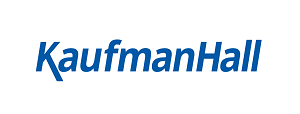Healthcare Cost Containment subscribers can access the individual articles and web exclusives listed below.
Performance Improvement
NewYork-Presbyterian Curbs Costs with a Structured Redesign Approach
By Laura Ramos Hegwer
By pairing project management professionals with operational leaders on key initiatives, the organization achieved $96 million in cost savings in 2017 while maintaining high-quality care.
Web Extra: NewYork-Presbyterian Performance Improvement Project Request and Evaluation Form
Pharmacy Costs
Multimodal Approach Saves MedStar Health $13M in 8 Years
By Laura Ramos Hegwer
Many hospital leaders focus on price negotiations with manufacturers to reduce pharmacy costs. However, pharmacists at one 10-hospital health system recognize the cost-saving benefits of engaging physicians, standardizing 340B program processes, and employing other strategies.
Data Analysis
Advanced Analytics Must Drive the Next Round of Productivity Initiatives
From our Sponsor Kaufman Hall
By Therese A. Fitzpatrick, Kristopher Goetz, and Brian Cole
To achieve the next round of cost-reduction goals, care delivery models that use a different mix and quantity of healthcare professionals must be put in place. Supported by advanced analytics and statistical modeling, hospital leadership can demonstrate how fewer labor hours and lower total costs can deliver consistent and excellent clinical outcomes.
Facility Management
4 Ways Real Estate Strategy Curbs Costs and Supports Care
By Richard Taylor
By perfecting the “puzzle” of care settings and reaching more patients more effectively, health systems can make invaluable headway in their critical goals of reducing fixed and operating costs.
Patient Satisfaction
Improving Patient Experience May Reduce Readmissions
An interview with Jocelyn Carter, MD, MPH, Massachusetts General Hospital, by Laura Ramos Hegwer
Asking high-risk patients about their care experiences before discharge can help reduce costly readmissions.
Cost Trends
What’s Driving Increased Hospital Cost Concerns?
By Rich Daly
Cost control eclipsed revenue growth as the top priority among health system CEOs, according to Advisory Board’s Annual Health Care CEO Survey.
Healthcare Costs at a Glance
Decline in Hospital-Acquired Conditions Saves Almost $3B
AHRQ reports that hospital-acquired conditions fell by 350,000 between 2014 and 2016. With an adverse drug event costing a hospital anywhere from $1,200 to $9,000 and a catheter-associated urinary tract infection costing between $5,000 and almost $30,000, this reduction is a positive indicator for reducing health costs.






